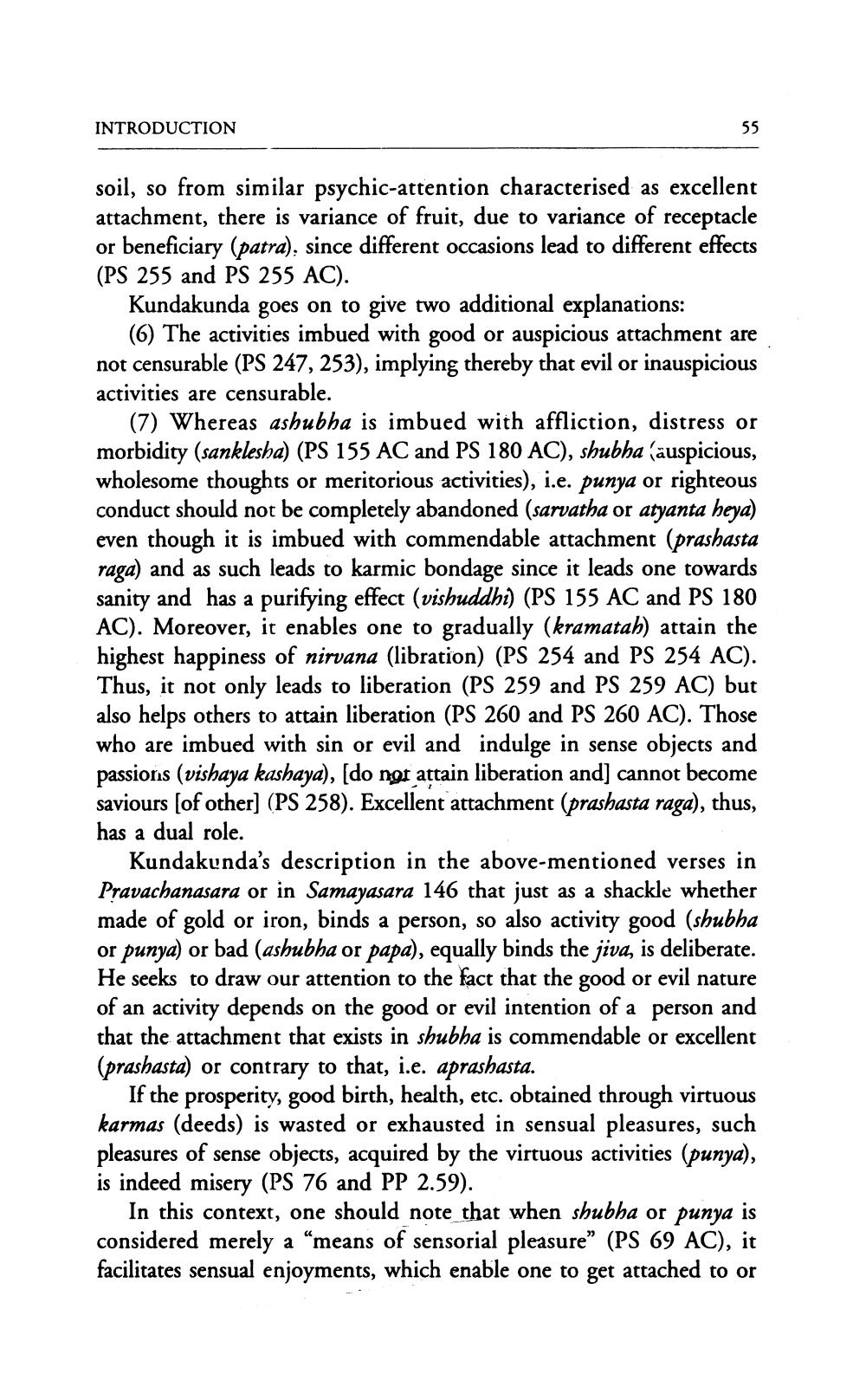________________
INTRODUCTION
55
soil, so from similar psychic-attention characterised as excellent attachment, there is variance of fruit, due to variance of receptacle or beneficiary (patra), since different occasions lead to different effects (PS 255 and PS 255 AC).
Kundakunda goes on to give two additional explanations:
(6) The activities imbued with good or auspicious attachment are not censurable (PS 247, 253), implying thereby that evil or inauspicious activities are censurable.
(7) Whereas ashubha is imbued with affliction, distress or morbidity (sanklesha) (PS 155 AC and PS 180 AC), shubha (auspicious, wholesome thoughts or meritorious activities), i.e. punya or righteous conduct should not be completely abandoned (sarvatha or atyanta heya) even though it is imbued with commendable attachment (prashasta raga) and as such leads to karmic bondage since it leads one towards sanity and has a purifying effect (vishuddhi) (PS 155 AC and PS 180 AC). Moreover, it enables one to gradually (kramatah) attain the highest happiness of nirvana (libration) (PS 254 and PS 254 AC). Thus, it not only leads to liberation (PS 259 and PS 259 AC) but also helps others to attain liberation (PS 260 and PS 260 AC). Those who are imbued with sin or evil and indulge in sense objects and passions (vishaya kashaya), [do nor attain liberation and] cannot become saviours [of other] (PS 258). Excellent attachment (prashasta raga), thus, has a dual role.
Kundakunda's description in the above-mentioned verses in Pravachanasara or in Samayasara 146 that just as a shackle whether made of gold or iron, binds a person, so also activity good (shubha or punya) or bad (ashubha or papa), equally binds the jiva, is deliberate. He seeks to draw our attention to the fact that the good or evil nature of an activity depends on the good or evil intention of a person and that the attachment that exists in shubha is commendable or excellent (prashasta) or contrary to that, i.e. aprashasta.
If the prosperity, good birth, health, etc. obtained through virtuous karmas (deeds) is wasted or exhausted in sensual pleasures, such pleasures of sense objects, acquired by the virtuous activities (punya), is indeed misery (PS 76 and PP 2.59).
In this context, one should note that when shubha or punya is considered merely a "means of sensorial pleasure" (PS 69 AC), it facilitates sensual enjoyments, which enable one to get attached to or




